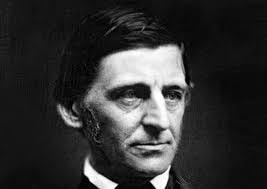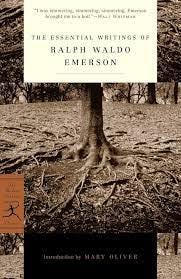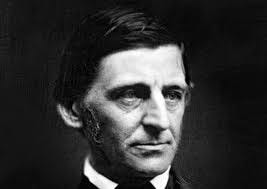Ralph Waldo Emerson on the danger of books (#33)
Ralph Waldo's warning against dogma, call for us think for ourselves, and for the creative "active soul"
Books are the best of things, well used; abused, among the worst.
Ralph Waldo Emerson
One of the most famous speeches in the history of Harvard was given in 1837 by a little-known, 34 year-old former priest named Ralph Waldo Emerson.
In his 20s, Emerson was a junior pastor. But the death of his wife Ellen—she died at the age of 20 from tuberculosis1— cut hard at Emerson’s faith. Not long after, he left the church and traveled to Europe.
While in Paris, he visited the Jardin de plantes,2 which, as one biographer noted, drew him to the “insight into the interconnectedness of things.” That experience inspired his first book-length essay called, “Nature.”
It was based on the success of Nature that Emerson, just one year later, was asked to speak at Harvard.
The 1837 lecture, “The American Scholar”—a speech that would, along with Nature, lead to his rise to fame— was about a problem Emerson saw in the still young United States. The US needed to breakaway from old traditions of Europe and create their own identity. Oliver Wendell Holmes, Sr3 called it, “the declaration of independence of American intellectual life.”
A key idea in that speech—one that so shook me when I read it—is the subject of today’s OGT.
“Beware of the bookworm”
The threat Emerson warned against was of reading a book and taking it as gospel.
Books are the best of things, well used; abused, among the worst. What is the right use? What is the one end which all means go to effect? They are for nothing but to inspire.
In the context of a 60-year old country developing its voice, and a short career in the Puritan ministry, Emerson admonished “[the] grave mischief” of becoming dogmatic:
The poet chanting was felt to be a divine man: henceforth the chant is divine also. The writer was a just and wise spirit: henceforward it is settled the book is perfect; as love for the hero corrupts into worship of his statue.
It wasn’t that Emerson didn’t love books—he did.
What he was calling for is what he would call “Man4 Thinking,” rather then blindly accepting the famous texts, religious or otherwise:
Colleges are built on it. Books are written..not by Man thinking…[but] by men who start wrong, who set out from accepted dogmas, not from their own sight of principles.
Meek young men grow up in libraries, believing it their duty to accept the views which Cicero, which Locke, which Bacon, have given; forgetful that Cicero, Locke, and Bacon were only young men in libraries when they wrote these books.
Better to create your own ideas than to read Cicero or Locke with blind acceptance.
I had better never see a book than to be warped by its attraction clean out of my own orbit, and made a satellite instead of a system. The one thing in the world, of value is the active soul. This every man is entitled to; to this every man contains within him, although in almost all men obstructed and as yet unborn.
To protect the active soul, he says, we can’t be pinned by books or schools, but rather, have to think for ourselves
The book, the college, the school of art….stop with some past utterance of genius. This is good, say they—let us hold by this. They pin me down. They look backward and not forward. But genius looks forward: the eyes of man were set on his forehead, not in his hindhead: man hopes: genius creates.
Whatever talents may be, if the man create not, the pure efflux of the Deity is not his; cinders and smoke there may be, but not yet flame.
The OGT
There’s a little irony here: I, a proud bookworm, am quoting Emerson on how you should be careful of books.
But the key idea to me is to use books as inspiration, not credo. That even Locke and Bacon were trying to figure things out. They should be used as a push, not a pull. A spark, not a magnet. This applies, of course, even to Emerson.
Whenever I read a book now, that line comes into my head: “Meek young men grow up in libraries, believing it their duty to accept the views which Cicero, which Locke, which Bacon, have given; forgetful that Cicero, Locke, and Bacon were only young men in libraries when they wrote these books.”
I try to remember that before turning from reader to zealot. I try to remain the “system” and not the “satellite.” I want to be, not merely cinders and smoke, but flame.
I try to think for myself.
Tuberculosis is a bacterial infection of the lungs. In Emerson’s time, it was one of, if not the, leading cause of death. This went way down after a vaccine was discovered in the early 1900s.
In the 5th arrondissement on the Left Bank about a mile from the Luxembourg Gardens.
Father of the famous Supreme Court Justice.
*Person - sorry, ladies. Forgive Waldo his 19th century-born sexism, if you can.





